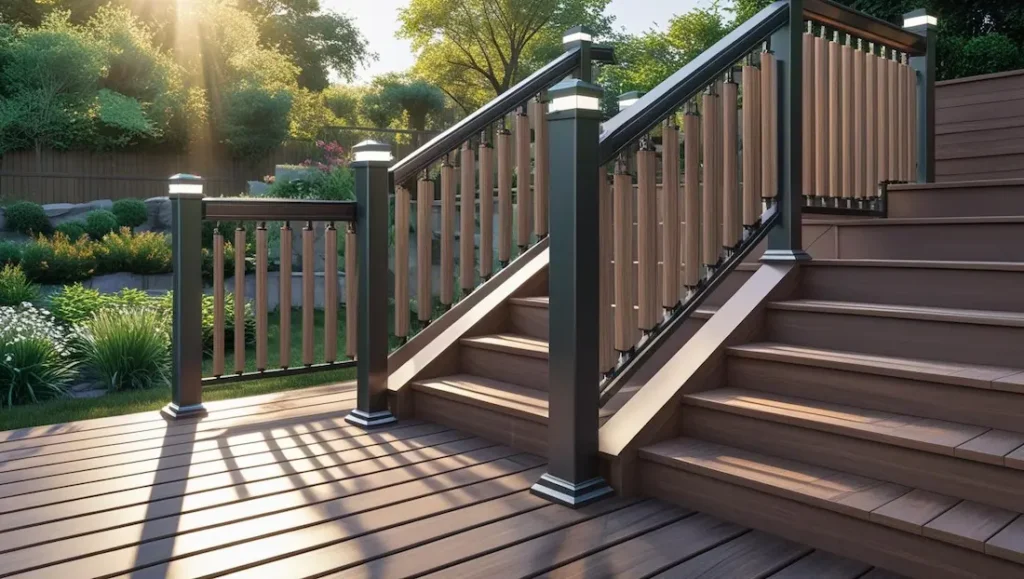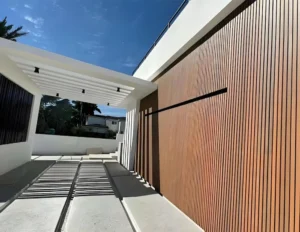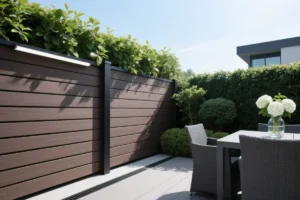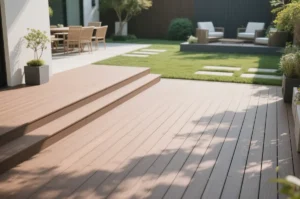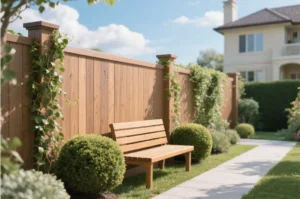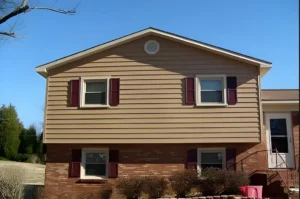Understanding the parts of a deck is essential when planning to build, renovate, or inspect an outdoor space. Whether you’re a homeowner or contractor, knowing how each component fits together ensures a safe, durable, and attractive deck structure.
A standard deck includes two key systems: the substructure and the surface components. Together, they form 12 critical deck parts that work as one cohesive system. Let’s explore each of them in detail.
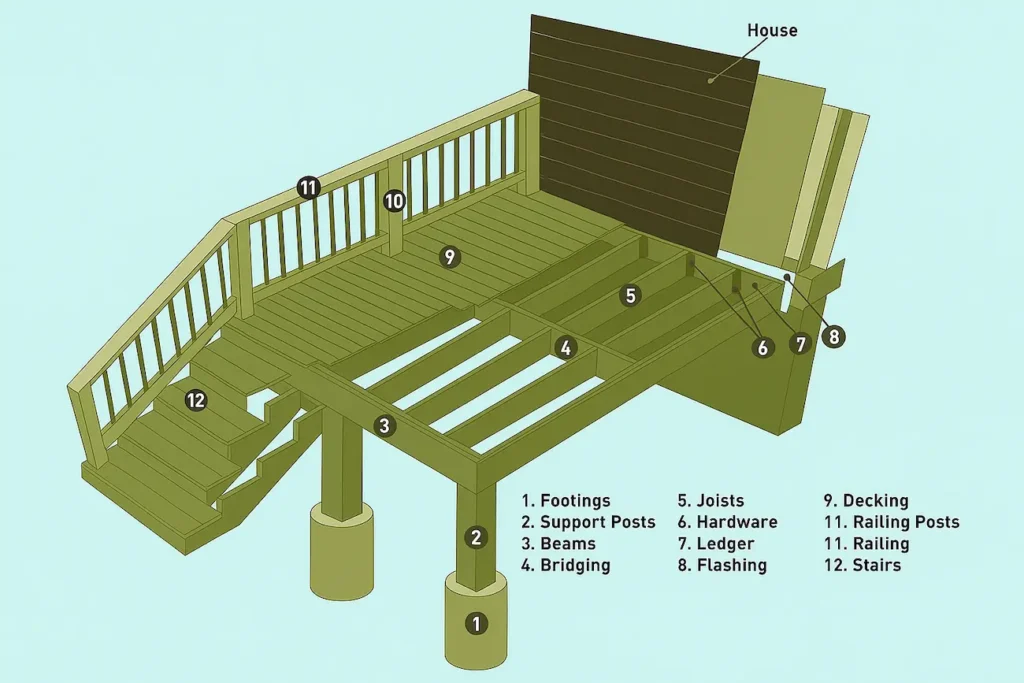
Substructure: Foundation-Level Parts of a Deck
The deck substructure is the hidden framework that supports everything above. It includes footings, posts, beams, joists, and fasteners. These parts must be well-installed to avoid sagging, shifting, or collapse over time.
📌 See our full deck framing guide and deck installation guide.
1. Footings
Footings serve as the base of the deck. Usually made of poured concrete, they distribute the load into the ground and prevent structural movement.
In cold climates, footings must be below the frost line to avoid heaving during freeze-thaw cycles.
2. Support Posts
Posts transfer the weight of the deck from the beams to the footings. Typically made of 4×4 or 6×6 pressure-treated lumber, they are anchored with galvanized metal brackets.
Learn how to choose deck support materials
3. Beams
Beams run horizontally and support joists. Larger decks may require double or triple beams placed at intervals to improve weight distribution and reduce bounce.
4. Joists
Joists are one of the most important deck components. They span across beams and hold up the decking boards. Spacing is typically 16 inches on center, but 12 inches is recommended for diagonal decking.
🧰 Pro Tip: Use joist hangers for extra strength. See our deck hardware guide for options.
5. Blocking & Bridging
Blocking involves small boards placed between joists to prevent twisting and add stiffness. They’re especially useful for heavy decking boards or complex layouts like herringbone patterns.
6. Ledger Board
This critical part attaches the deck to your house. It bears a significant portion of the load and must be securely fastened into the home’s framing.
Annual inspection of the ledger board is essential to avoid safety risks. Read about ledger board waterproofing
7. Flashing
Flashing protects the home and the deck connection from water damage. L-shaped metal or vinyl flashing is placed above and behind the ledger board.
Applying flashing tape over the top of joists and ledgers adds extra protection.
8. Hardware & Fasteners
Hardware includes joist hangers, structural screws, lag bolts, and brackets. These elements hold everything together and must be corrosion-resistant for outdoor use.
🛠 Always use stainless steel or hot-dip galvanized hardware, especially near the coast.
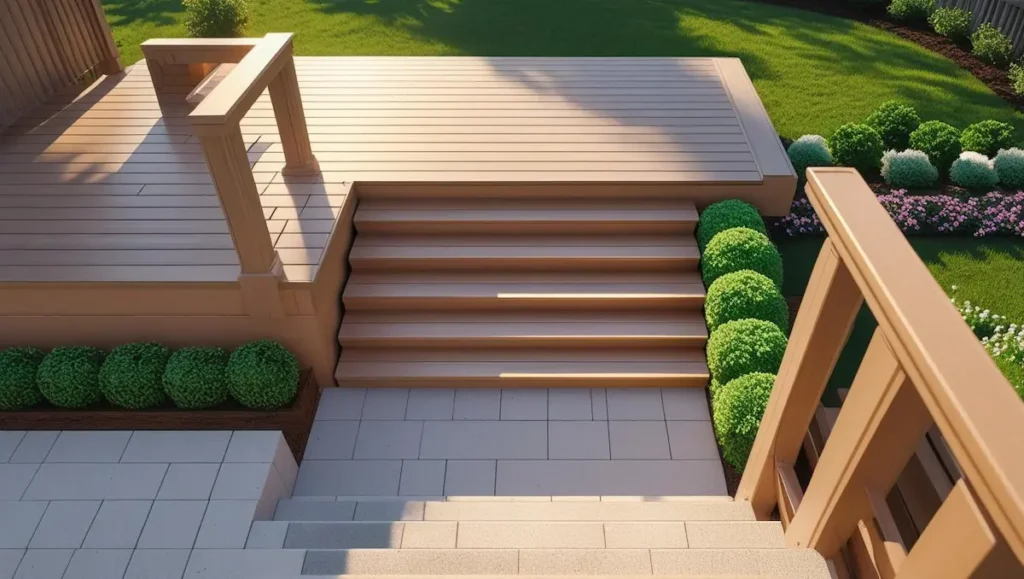
Surface Components: Visible Parts of a Deck
The surface defines the look, feel, and functionality of your outdoor space. It includes decking boards, railings, posts, and stairs. These deck surface parts need to be weather-resistant and code-compliant.
9. Decking Boards
Decking boards are the most visible parts of a deck. Materials include wood, composite (WPC), PVC, and aluminum.
Each material type has specific fastener requirements, so follow the manufacturer’s installation guide.
📎 Explore composite decking options
10. Railing Posts
Railing posts support the railing system. These can be surface-mounted or fascia-mounted and may include decorative post sleeves.
11.Deck Railings
Railings provide safety and style. A typical railing system includes a top rail, bottom rail, and infill (like balusters, cables, or glass).
📐 Decks over 30 inches above grade typically require railings. See deck railing height
12. Stairs
Stairs connect the deck to the ground or yard. Depending on the height, you may need one or several steps, or a full staircase with landings.
🧱 Tip: Always check local building codes before building stairs.
Ready to Build? Start with the Right Knowledge
Now that you know the essential parts of a deck, you can plan your project with confidence. From the footings to the surface boards, every component plays a role in safety and aesthetics.

